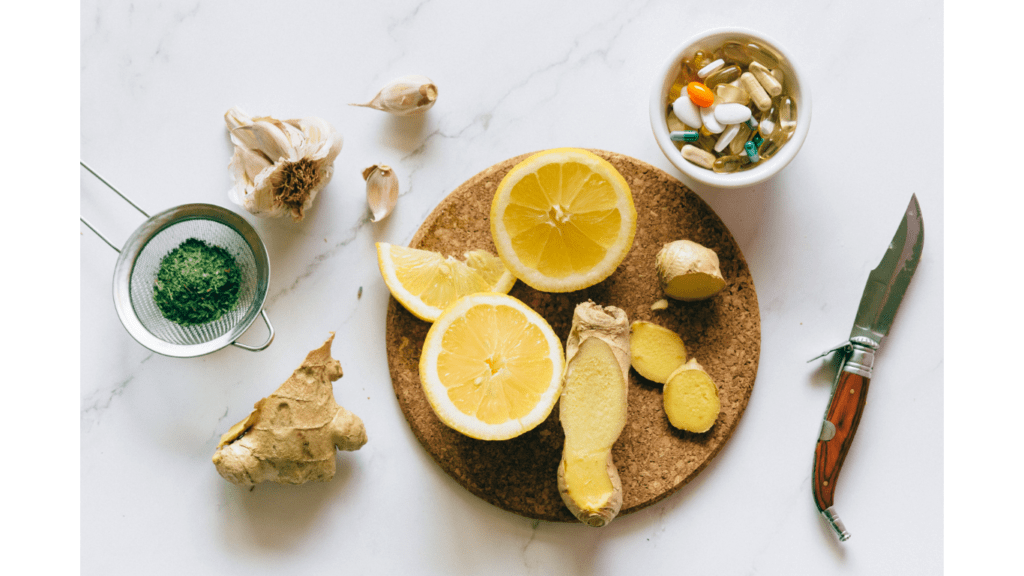The Rise of Herbal Remedies in Modern Wellness
A Brief History of Herbal Medicine
Exploring the roots of herbal medicine is delving into centuries of traditional knowledge passed down through generations. Ancient civilizations like the Egyptians, Greeks, and Chinese recognized the healing properties of herbs and plants, laying the foundation for modern herbal practices. Utilizing nature’s gifts for medicinal purposes has stood the test of time, showing the enduring relevance of herbal remedies in enhancing overall well-being.
The Resurgence of Natural Treatments
In today’s fast-paced world, the resurgence of natural treatments reflects a growing appreciation for holistic health approaches. With a shift towards sustainable living and a focus on self-care, herbal remedies have regained popularity. Consumers are turning to natural alternatives for various ailments, seeking gentle yet effective solutions rooted in nature. The revival of traditional herbal practices signals a return to balance and harmony in modern wellness routines.
Understanding Herbal Remedies
Defining Herbal Medicine
Herbal medicine, rooted in ancient traditions, involves using plant extracts for their therapeutic properties. These remedies harness the healing power of nature, offering a holistic approach to well-being. Plants like ginger, ginseng, and turmeric are commonly used in herbal medicine for their diverse health benefits. By incorporating herbal remedies into daily routines, individuals can support their overall health naturally.
How Herbal Remedies Work
Herbal remedies work by leveraging the bioactive compounds present in plants to address specific health concerns. For example, peppermint tea is known for its calming effects on the digestive system due to its menthol content. Similarly, chamomile is often used to promote relaxation and improve sleep quality. Understanding the properties of different herbs allows us to tailor treatments to individual needs, making herbal remedies a versatile and effective option for enhancing wellness.
The Benefits of Herbal Remedies
Herbal remedies offer a plethora of benefits, making them a valuable addition to modern wellness practices. Let’s delve into the advantages of utilizing herbal remedies for health and vitality.
Natural and Fewer Side Effects
Herbal remedies are known for being natural and typically have fewer side effects compared to synthetic medications. For example, using ginger for nausea or peppermint for indigestion can be gentle on the body without harsh chemicals. The bioactive compounds found in herbs often work in harmony with the body, reducing the risk of adverse reactions commonly associated with pharmaceutical drugs.
Supporting Holistic Health
Incorporating herbal remedies into daily routines supports holistic health by addressing the root causes of health issues. Instead of merely alleviating symptoms, herbs like turmeric can reduce inflammation, promoting overall well-being. By treating the whole person rather than just specific symptoms, herbal remedies contribute to a balanced and holistic approach to wellness.
Cost-Effectiveness
One of the significant advantages of herbal remedies is their cost-effectiveness. Herbal treatments are often more affordable than prescription medications, making them accessible to a broader range of individuals. Additionally, many herbs can be grown at home or purchased in bulk, reducing the financial burden associated with maintaining good health. This affordability makes herbal remedies a sustainable option for long-term wellness strategies.
Popular Herbal Remedies and Their Uses

Herbs for Stress and Anxiety
- Exploring herbal remedies for stress and anxiety can offer natural relief for daily challenges. Herbs like lavender, known for their calming properties, can help relax the mind and body. Similarly, chamomile is valued for its stress-reducing effects, promoting a sense of tranquility. These herbal options provide gentle yet effective support for managing stress and anxiety in a holistic manner.
Herbal Solutions for Digestive Health
- Herbal remedies can play a significant role in promoting digestive health and addressing common concerns. Peppermint, with its soothing properties, can aid in relieving digestive discomfort and promoting better digestion. Ginger is another herb known for its ability to ease nausea and support overall digestive function. By incorporating these herbs into daily routines, individuals can enhance their digestive wellness naturally.
Boosting Immunity with Herbs
- Boosting immunity through herbal remedies is a traditional approach to supporting overall health. Echinacea, a well-known herb for immune support, can help strengthen the body’s natural defenses. Elderberry is another immune-boosting herb rich in antioxidants that can aid in fighting off infections. By including these herbs in one’s wellness regimen, individuals can fortify their immune system and enhance their resilience to common illnesses.
Scientific Evidence Supporting Herbal Remedies
Clinical Trials and Research Findings
In my exploration of herbal remedies, I’ve delved into the realm of clinical trials and research findings that support the efficacy of these natural treatments. Studies have shown that herbs like lavender and chamomile, known for their calming properties, can indeed reduce stress and anxiety levels in individuals. This evidence-backed support for herbal remedies adds credibility to their traditional uses and showcases their relevance in modern wellness practices.
Recognizing the Limitations
When considering the use of herbal remedies, it’s essential to acknowledge their limitations. While herbs like peppermint and ginger are celebrated for their positive impact on digestive health, it’s crucial to understand that individual responses may vary. Not all remedies work universally, and it’s important to recognize that herbal treatments may not be suitable for everyone. By being aware of these limitations and consulting healthcare professionals when necessary, individuals can make informed decisions about incorporating herbal remedies into their wellness routines.
Integrating Herbal Remedies into Daily Life
After exploring the benefits of herbal remedies and understanding the importance of recognizing their limitations, it’s crucial to delve into how to integrate these natural solutions into your daily routine effectively.
1. Consulting with Professionals
When considering incorporating herbal remedies into your wellness routine, it’s essential to consult with healthcare professionals. A naturopathic doctor, herbalist, or qualified healthcare provider can offer valuable insights tailored to your individual needs. They can help you navigate the vast world of herbs, ensuring you choose the right remedies and dosages for your specific health concerns. Professional guidance can enhance the effectiveness and safety of herbal treatments, promoting optimal wellness outcomes.
2. Herbal Preparations and Dosage
Understanding the various herbal preparations and correct dosages is key to reaping the benefits of herbal remedies. Different herbs require different forms of preparation, such as teas, tinctures, capsules, or essential oils. Each method of preparation impacts the potency and absorption rate of the herbs in the body. Additionally, determining the appropriate dosage is crucial for achieving desired results while minimizing the risk of adverse effects. By following recommended guidelines and consulting with professionals, you can optimize the efficacy of herbal treatments in promoting overall well-being.
3. Growing Your Own Herbs
One empowering way to integrate herbal remedies into your daily life is by growing your own herbs. Cultivating a home herb garden allows you to have easy access to fresh, organic herbs for medicinal purposes. Herbs like mint, basil, rosemary, and thyme are popular choices for home gardens due to their versatility and health benefits. By growing your own herbs, you can ensure their quality, sustainability, and purity, while also fostering a deeper connection with nature and the traditional wisdom of herbal medicine. Whether in a backyard garden or indoor pots, nurturing your herbs can be a fulfilling and rewarding experience in enhancing your well-being through natural remedies.
Ethical and Sustainable Sourcing of Herbs
The Importance of Ethical Sourcing
- Ethical sourcing of herbs is a crucial aspect when harnessing the benefits of herbal remedies. As an advocate for natural wellness, I believe it’s essential to ensure that the herbs used in remedies are sourced responsibly. When I select herbs for my wellness routines, I prioritize products that are sustainably harvested, promoting fair trade practices that benefit both the environment and the communities involved in cultivation. By choosing ethically sourced herbs, I not only support the preservation of natural habitats but also contribute to the well-being of those who cultivate these valuable plants.
Sustaining Herbal Traditions and Biodiversity
- Sustaining herbal traditions and biodiversity is integral to maintaining the richness and effectiveness of herbal remedies. In my journey towards embracing herbal practices, I’ve learned the significance of preserving traditional knowledge passed down through generations. It’s essential to honor the heritage of herbal medicine by supporting local growers and communities that uphold these age-old traditions. By doing so, I actively participate in safeguarding the diversity of plant species and ensuring the availability of potent herbs for future generations.
- zxsw3wBy prioritizing ethical sourcing and sustaining herbal traditions, I not only enhance my well-being but also contribute to the preservation of natural resources and cultural heritage. Through conscious choices in sourcing herbs and respecting ancient wisdom, I embrace a holistic approach to wellness that resonates with both the past and the present.


